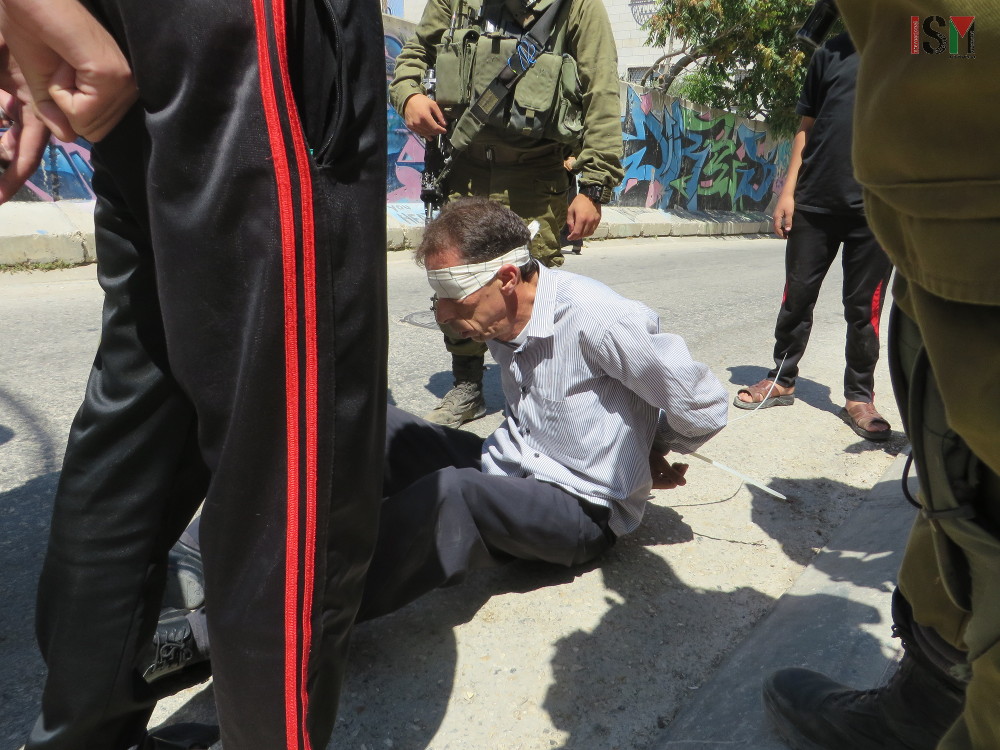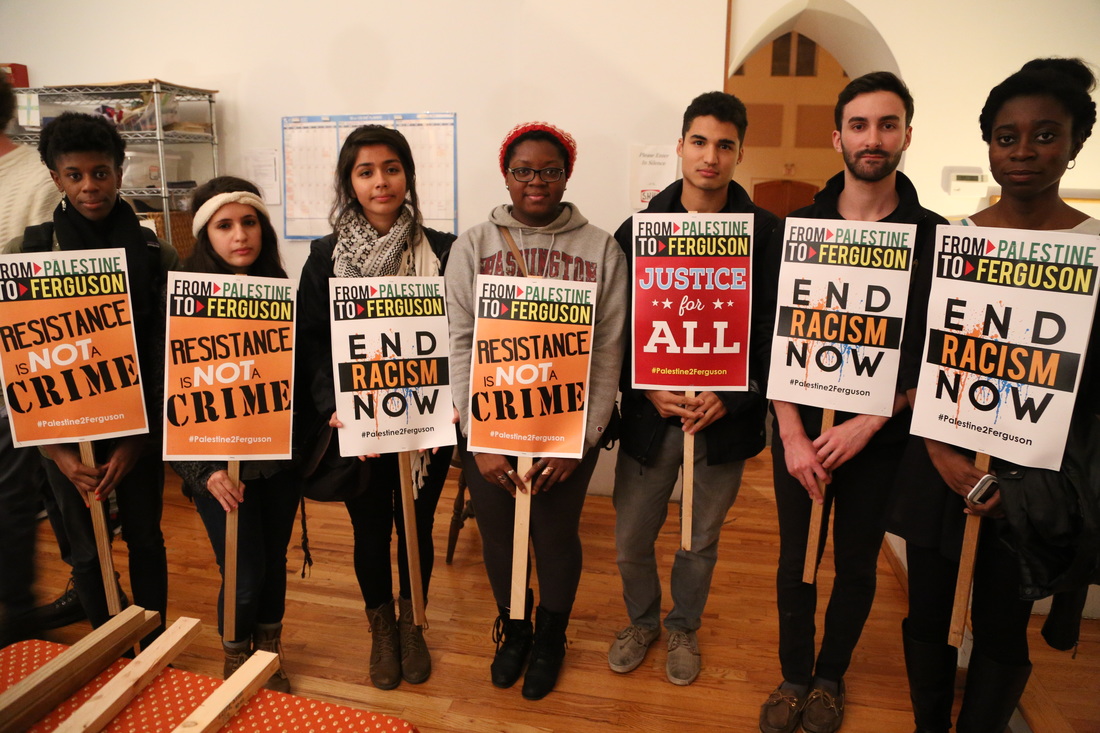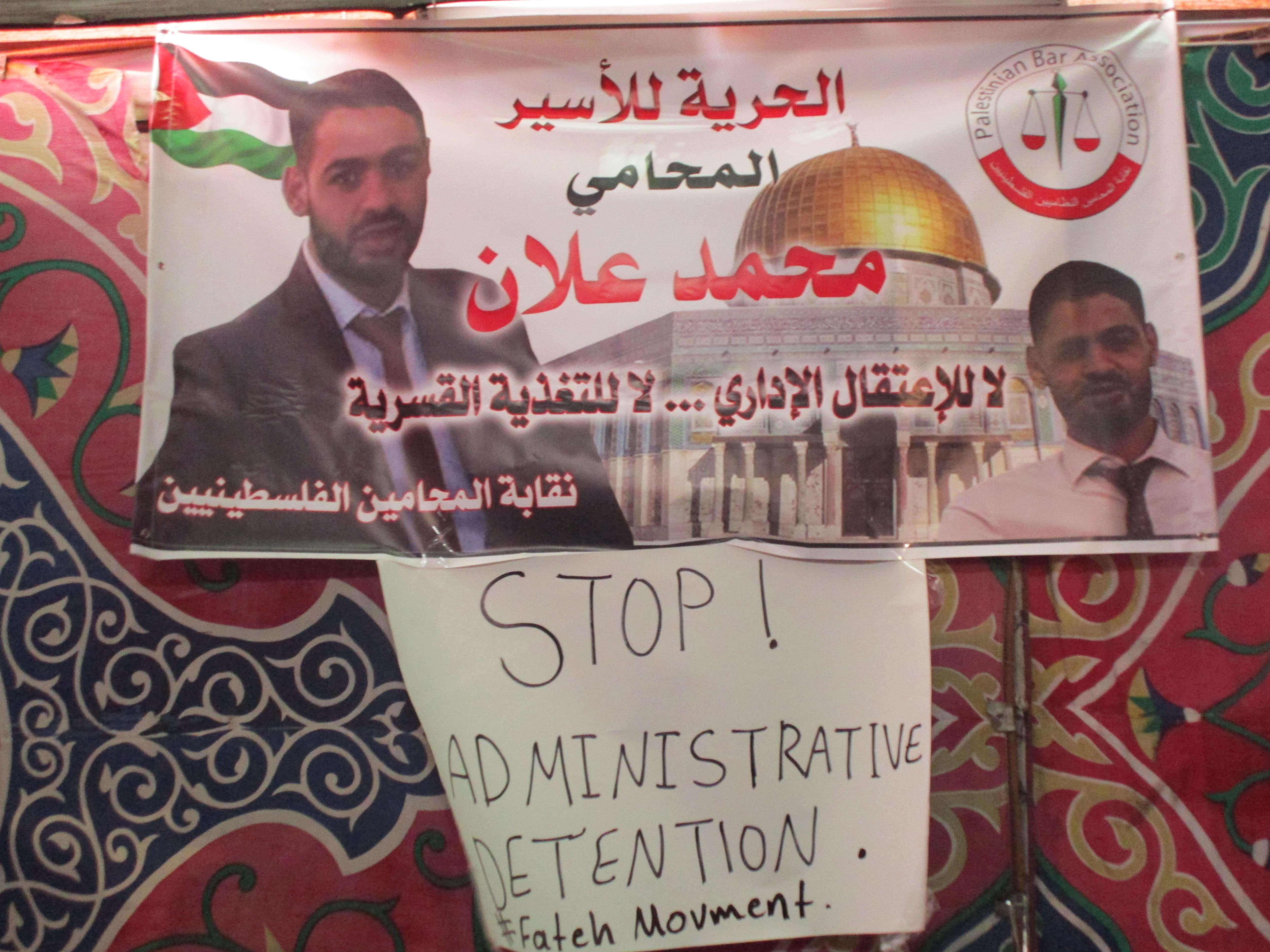Tag: Video
-

Violent arrest of Palestinian man in al-Khalil (Hebron)
29th August 2015 | International Solidarity Movement, al-Khalil Team | Hebron, occupied Palestine A 52-year old Palestinian man was arrested at Shuhada checkpoint in al-Khalil (Hebron) yesterday, for ‘not obeying soldiers’ orders. Israeli forces painfully handcuffed and blindfolded him. Around 1:30 pm, Hisham Azzeh walked through Shuhada Checkpoint in order to reach his house that…
-

1,000 Black activists, artists, and scholars demand justice for Palestine
19th August 2015 | Black4Palestine | USA Over 1,000 Black activists, artists, scholars, students, and organizations have launched a statement expressing their solidarity and commitment to ensuring justice for Palestinians. Signatories to the statement span a wide cross-section of Black activists and scholars, including Angela Davis, Boots Riley, Cornel West, dream hampton, Emory Douglas, Mumia Abu-Jamal, Pam…
-

Palestinian lawyers went on hunger strike in solidarity with Mohammed Allan and to protest against administrative detention
20th August 2015 | International Solidarity Movement, al-Khalil Team |Hebron, Occupied Palestine Last Tuesday Palestinian lawyers went on a hunger strike. Hatem Shahin, vice-president of the Palestinian Bar Association for lawyers, explains why thirteen of the Association’s members decided to take this radical step: “The main goals are to break the isolation of the Palestinian prisoners…
